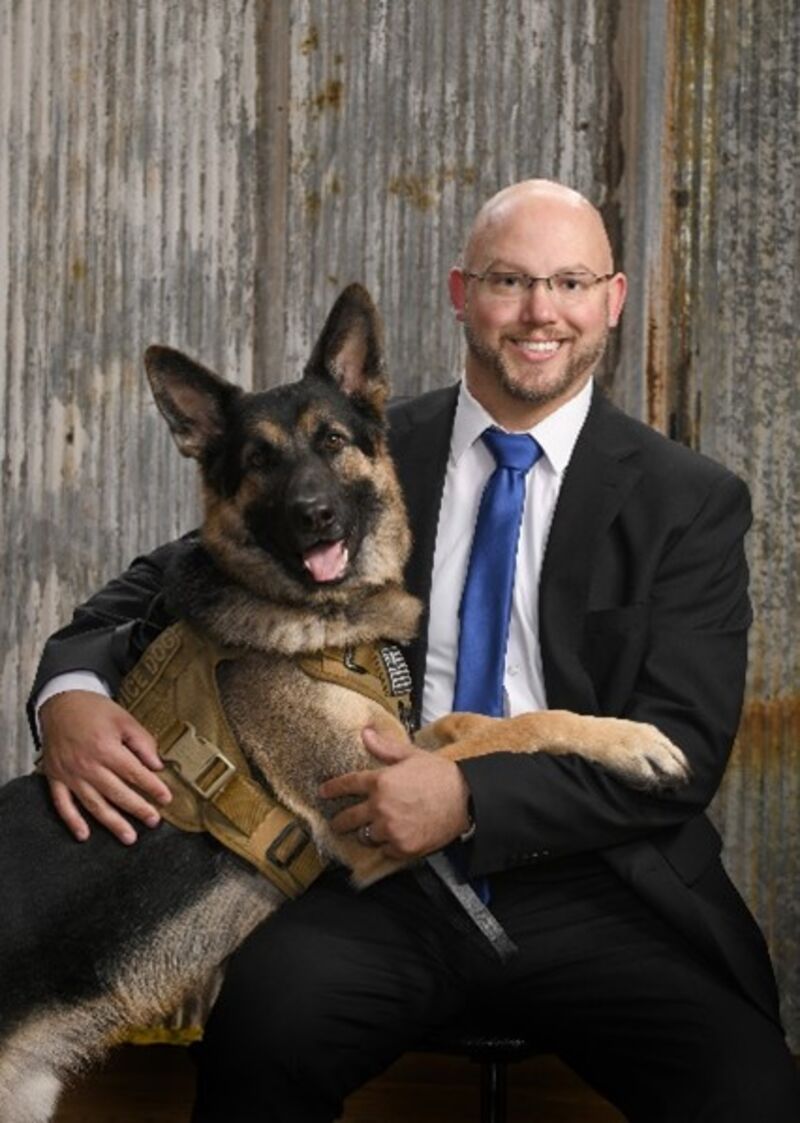
If you’ve ever experienced the undying loyalty of a dog, you’ll know that they’re more than just furry companions. They're often a beacon of hope, support (and let's face it), endless joy. But for veterans and individuals with disabilities, service dogs are not just cute canines; they’re superhero sidekicks on four legs! Today, we’ll dig into how these remarkable animals are making strides (pun totally intended) in the lives of those who need them the most.
While May is National Pet Month, not all pets have the skills, drive or personality to be a service animal. Please have your dog evaluated by a professional before setting your heart on this life-changing adventure. Otherwise, you might end up chasing your tail training a dog that is not up to the task.
The Unleashed Potential of Service Dogs for Veterans
For many veterans, the transition from military life to civilian life can be as rocky as a bumpy trail in the Rockies. Enter the service dog—a trained partner that often acts as a lifeline. These four-legged wonders are specially trained to assist veterans coping with post-traumatic stress disorder (PTSD), physical disabilities, and even anxiety.
Service dogs can perform a multitude of tasks, including:
- Guiding: When PTSD makes it hard to navigate crowded places (think: grocery stores or concerts), a service dog can provide support by guiding their human through these overwhelming situations.
- Alerting: Some service dogs can sense when their veteran is about to experience an anxiety attack or flashback. It’s like having your very own canine crystal ball—bark-tacular, isn’t it?
- Physical Assistance: For veterans with mobility challenges, these Service Animals can retrieve items, open doors, and even help with balance (on particularly wobbly days).
By offering both practical assistance and undeniable emotional support, service dogs are often the X-Factor that transforms a veteran's life. They are making an impact without the side effects that medication may have, or the time that counseling takes. It's like you had a personal assistant with a wagging tail and an adorable face—how can you say no to that?
The World of Service Animals for Other Empowered Individuals
Now, let’s broaden our horizons beyond the battlefield. Service animals aren’t just reserved for heroes in fatigue; they’re for anyone with a disability. Under the Americans with Disabilities Act (ADA), a service animal is defined specifically as a dog that has been trained to perform tasks for an individual with a disability. Sorry, Fluffy the cat—you're just not cut out for this gig!
So, what unique roles can service dogs play in the lives of individuals with disabilities? Let’s break it down:
- Medical Alerts: For individuals with conditions like diabetes or epilepsy, a service dog can alert them when their blood sugar levels are too high or too low, or even if a seizure is about to occur. They’re like canine versions of those fancy alert systems but much fluffier!
- Social Support: Dogs can help reduce anxiety and promote social interaction, easing feelings of loneliness for those with disabilities. Want to break the ice at a social event? Just show up with an adorable service dog—guaranteed instant friends!
- Motivation to Move: For those with physical disabilities, service dogs can encourage more mobility. It’s hard to say no to a walk when your canine companion is giving you that irresistible “puppy dog” look!
For me personally, this was a HUGE piece of my disability journey. Occupational therapists do a phenomenal job but there were some days that my pain level wasn’t going to get me out of bed for another person. The unconditional love of a dog and the excitement when they see you were the only things that would help me push through.
The Tail of Responsibility
Now, we’ve covered the many pawsibilities, but owning a service dog is no walk in the park. It requires commitment, training, and lots of love. Both veterans and individuals with disabilities must be ready to work closely with their service dogs. They must create a partnership that’s built on trust, respect, and a little bit of slobber here and there.
And let's not forget, the presence of service dogs in public spaces helps educate others about the capabilities and needs of those living with disabilities. It’s a win-win!
Wrapping Up the Canine Chronicles
As we salute the incredible bond between humans and their service dogs, let’s remember to advocate for their rights and celebrate the community of support that they foster. Service dogs are not just pets; they’re trained professionals, empowered companions, and often—lifesavers.
If you’re in the market for a service dog or know someone who could benefit, don’t procrastinate any longer. Do your research and find out what type of dog would be best for you. Together, let’s make the world a more accessible and pawsitive place for those living with disabilities. Here’s to those wagging tails—and the inspiring stories behind them!
So next time you see a service dog at the café or the grocery store, give a little nod of appreciation. And remember, these aren’t just cute pups - they’re courageous companions paving the way for brighter tomorrows.
Tony Russell is a new member of the Rocky Mountain ADA Center Advisory Committee. Tony is an Air Force Wounded Warrior & Disability Advocate. He is also a service animal user with five years of experience educating other handlers and local business owners on service animal etiquette.